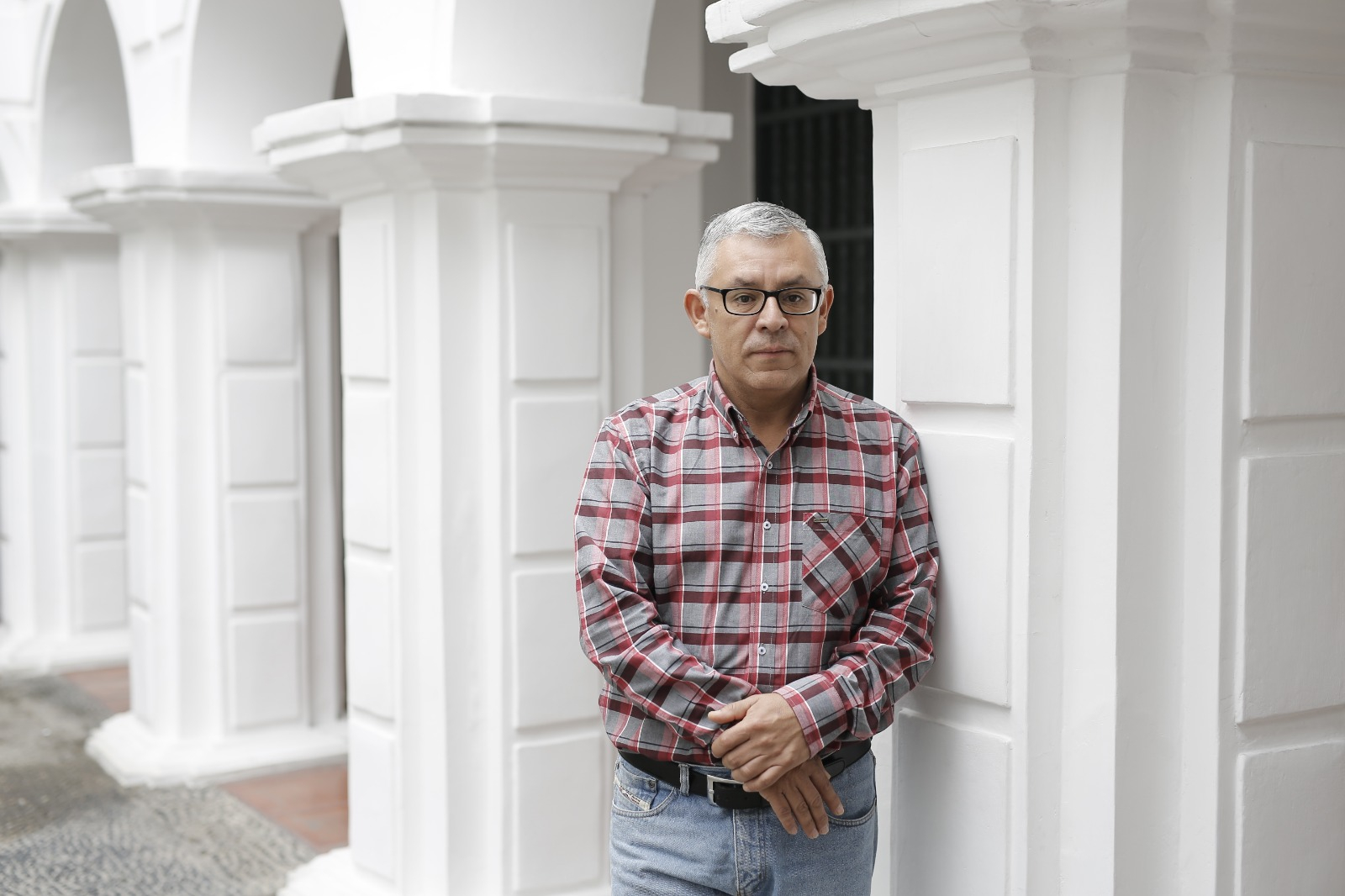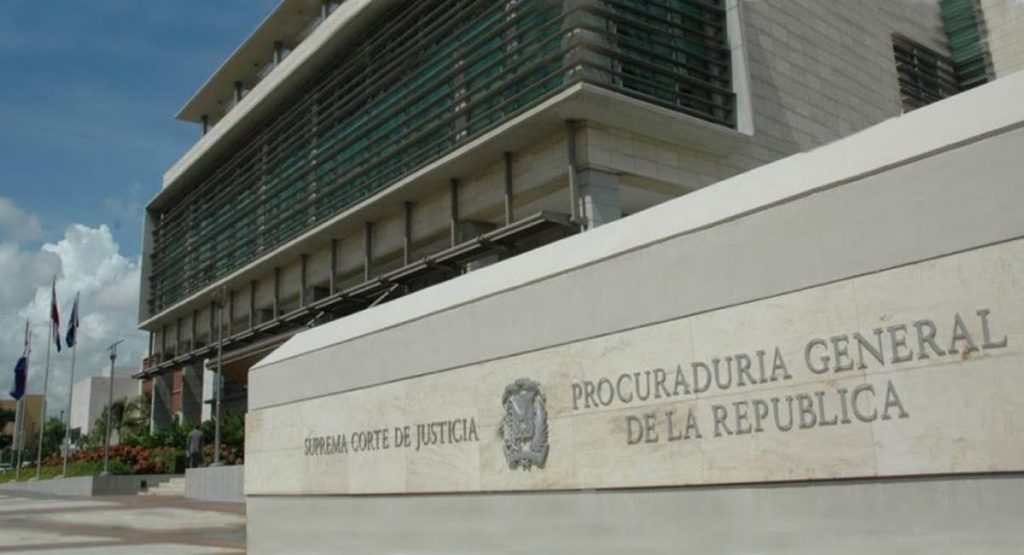Ramón Pajuelo, researcher at the Institute of Peruvian Studies, has published “The rebellion of reality: crisis, political decomposition and outbreak in Peru (2016-2024)” (La Siniestra), a book that brings together chronicles and essays in which he provides clues to try to understand the current crisis of multiple nature and offers possible exits from the labyrinth.
In June 2023 he wrote that the current Government is not a classic dictatorship like those of the 20th century nor a copy of Fujimorism, but rather an authoritarianism whose features and scope we will be able to fully appreciate in the future. It’s been a year and a half since that diagnosis. What kind of regime are we facing?
The idea that we are facing a new form of authoritarianism is confirmed, unlike the Latin American military authoritarianisms of the second half of the 20th century. It is an authoritarianism that comes from the decomposition of the political system of representation, very low-level in that sense, whose only objective is to be above power. It does not have a project, it does not express a real articulation of social and political interests and it is nothing more than a functional replacement piece for the immediate interests of some actors perched in Parliament and other private sectors that express, as a whole, the enormous deterioration of the country. This is an authoritarianism that shows very well the decomposition of the country.
What do you mean by petty authoritarianism? Without substance, without substance?
It has no depth or height. The president’s own appearance shows it. Boluarte’s is a management with very little horizon. He came out of an elected government that represented an alternative for social and political transformation in the country and that was quite far from that promise. But Mrs. Boluarte ended up being the useful piece for a somersault in power. He doesn’t really have the upper hand in terms of managing real power in the country.
YOU CAN SEE:
Who wields power according to your reading?
There is not a single actor. It is a moment of very strong political decomposition. What the book does is try to locate some elements by bringing together various works and reflecting on the historical complexity of the crisis in Peru. The Dina Boluarte regime is observed as a result of this decomposition.
He says that the crisis is multiple and reveals the difficulties of the neoliberal model. Because?
The crisis is very deep and brings together a lot of factors. There has been a lot of talk about the political crisis that broke out in 2016 and that leads us to think only about parties and the system of representation. The book proposes that it is rather situated in a historical crisis of the neoliberal order, a model of development, State and domination that has been installed in Peru since the nineties. It is also a development model that, in economic terms, achieved hopeful results in the sense of economically energizing the country. Until now, a discourse of neoliberal success continues to be maintained but, in reality, it is no longer supported by figures. This neoliberal crisis is a crisis of hegemony.
Is neoliberal hegemony under discussion?
The order of neoliberal hegemony transformed the model of development and accumulation that had been created in the previous decades of the 20th century and that is what entered into crisis. Part of this is the decomposition of the entire party system, of social movements. The Castillo Government and that of Boluarte later are results of that crisis.
What would be the historical reasons for this deep crisis?
There are several factors, actually. The book proposes that it is a crisis that reveals the difficulties of building a national and democratic order in the long term, since the creation of the republican State at the beginning of the 19th century. It is a State created on a basis of ethnic domination that continues in the country. The statements of the Minister of Education (Morgan Quero) about the Awajún girls reveals that very well. It is a State built on contempt, on the supposed inferiority of the indigenous people, of those considered different from the heights of Lima. But not only different but inferior and disposable. We see it with the dead of the Boluarte Government. There is a gap between a State and a theoretically democratic order built from above and a reality that always goes the other way.
Regarding this crisis of the neoliberal model, there is a permanent reference from the different Governments – the current one is no exception – to economic growth. Boluarte herself claimed in her last message that this not be highlighted. It is important to maintain limited inflation, that the sun remains stable, among other things, but, doesn’t it sometimes give the impression that that is the only thing that matters for those who exercise power?
The thing is that part of the neoliberal model is a neoliberal discourse that insists on its success. The macroeconomic component is necessary and, however, this discourse is quite far from what has been happening. This is a country of neoliberal success in which we have astonishing levels of poverty that have been revealed since the pandemic, with alarming levels of social deterioration, malnutrition, health problems of different types in our childhood, very poor social services. bad
The bases of the social outbreak of December 2022 were the peasant and indigenous communities. The Government’s strategy then was to terruqueo to justify the violence. Morgan Quero recently called the victims rats. From the official discourse, has an exclusion regime been established?
Of course. This is a political regime that prolongs the historical exclusion that exists in Peru, useful to the interests of right-wing and ultra-right sectors and economic power that are now very silent because they are interested in seeing things continue like this. It is a regime that decided to shoot at citizens mobilized to protest a political change and that has turned those shots into insults. The spokesperson for this verbal violence, which reflects very well the authoritarian character of the Government, is Morgan Quero. Not only that, Quero is the spokesperson for the decomposition of intelligence itself in Peru. He is an academic, a social scientist who has been committing those nonsense that do not reflect, in my opinion, simple mistakes…
Do they reflect a way of thinking?
That’s right, a way of thinking, of being, of settling into the public scene and of acting when you have power. It also represents the defeat of an entire way of thinking that comes in part from the social sciences. It is a shame for the social sciences in the country. What he has just said cannot be read other than as a verbal expression of the profound character of this authoritarian regime, flat and mediocre, perched on top of power, with no legitimacy, with no support and sustained by the hypocrisy of the sectors of power that They keep a president there whom they neither love nor respect. It simply serves their immediate interests.
I don’t know if I’m exaggerating with the question, but what is the future of social movements in Peru?
He doesn’t exaggerate. One of the threads of the book is the formation of social movements and their trajectory. Throughout the 20th century, a national social movement was formed in Peru that entered into a crisis between violence and the economic crisis and then ended up being destroyed by the neoliberal order and Fujimoriism. Although there is a deterioration in social representation, which includes forms of organization, articulation and expression, the crisis and political decomposition have ended up producing an explosion of this deeply deteriorated society. Your question that looks towards the future can be answered: there has to be some way out, some form of renewal of political representation. That is what has rebelled in the country. And it is a rebellion that does not only aim to change a regime or to change the face of a president, it aims at underlying demands: the way of building the State, citizenship, democracy and equality. I’m not even talking about political equality, but about human equality, as people who have the right to a dignified life, to respect from the State, to feel like members of a political community. Those underlying issues came out in the explosion.
I remember that the political and media power questioned whether the mobilizations were to demand political rights. They did not conceive that there were no demands for services such as better health or education. Hence, according to this view, the protesters were manipulated. Thinking?
Indeed. It was an entirely political mobilization that, from the heights of power, was seen as undervalued. This reflects an old contempt of colonial and racist origin that leads to seeing the people who mobilize as manipulated by others, who do not have the head to think for themselves, as ignorant and inferior. This deeply racist view is what is reflected in the Boluarte regime and it is not strange because, despite speaking Quechua, she is a misti president. It is not Quechua, indigenous, of popular origin. She expresses very well the mistis’ contempt for the Indians.
When he talks about there having to be some form of renewal of political representation, I imagine he is referring to one that comes from society itself. I don’t think I put much hope in our self-appointed political representatives, or am I wrong?
Correct, I am referring to a renewal that comes from society itself, because it cannot come about any other way. If this renewal comes from above, the only thing it will continue to generate are authoritarian regimes lacking political legitimacy. What we see in Peru is a rebellion of reality. Despite social life completely deteriorated by the neoliberal order, there is a society that is revealing actors and organizations that point towards something else, towards an old demand, of democracy, equality and development. Look what happened with the bicentennial.
What is it referring to?
I am in Ayacucho. In contrast to the absolutely mediocre bicentennial of Boluarte there is another bicentennial, that of the people with their expectations of celebrating the promise of a republican and democratic Peru. It is a bicentennial of entire families from different places who went to watch the representation of the battle in La Pampa and which was totally disconnected from the official ceremonies. They did not stop expressing their rejection of the Government, but they did express their adherence to a Nation project for all. That society is the one that has to express itself politically at some point. There is another element that I raise in the book that I would like to mention.
Which is it?
It has to do with the fact that Peru is a post-political violence society. We had thousands of deaths in Peru and we have just had dozens in the context of the crisis. Death and violence are elements against which we have to regain democratic horizons that must come from self-represented society itself, in no way from above, which is what we are trying to do at the moment. We need a renewed system of representation that allows the democratic play of differences, the processing of conflicts and interests. With the Boluarte Government, the State itself has broken the margins of the democratic order.
At the point of bullets.
At the point of bullets.
















